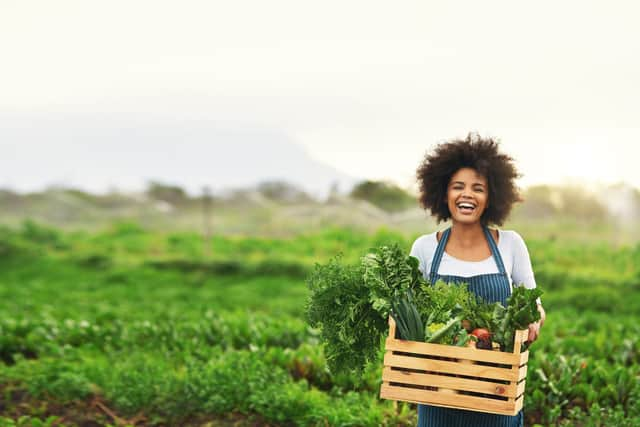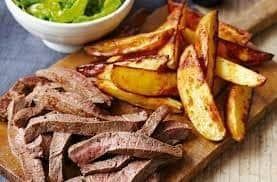Hospitality and farming industries could be key to saving each other following 18 months of "huge" challenges
Building relationships between the hospitality sector and British farmers and growers can deliver benefits to businesses, customers, and food producers, according to a new NFU report which was debated at a round table meeting last week.
‘Food, farming and hospitality: why the British story matters’, outlines how British sourcing can add value to hospitality businesses and why developing collaborative relationships with local producers will enable British food to be an integral part of out of home brands and the farm to fork story.
Advertisement
Hide AdAdvertisement
Hide AdThe NFU says it wants to work with the out of home market more closely, to build partnerships and enable British food and drink to be a part of the restaurant, pub or cafe’s brand and story.


In turn, British farmers will create greater opportunities to serve delicious local food that is safe and fully traceable and is a food that consumers trust.
Research into the issue, which was conducted by the NFU last year, found that 65 per cent of consumers are more likely to visit a venue which claims its ingredients are sourced from British farmers; both British and locally sourced food is perceived to be fresher, higher quality and more sustainable; nine out of 10 people think of sustainability when eating out, with local sourcing of
ingredients the number one aspect of sustainability; consumer expectations mean that products labelled as “locally sourced” should be sourced within 50 miles; and 56 per cent of GB consumers would be likely to pay extra for a dish on the menu where the main food item has been sourced from British farmers.
Advertisement
Hide AdAdvertisement
Hide AdNFU President Minette Batters said: “Whether it’s grabbing a bite to eat on the go, discussing business over lunch or celebrating an important event, eating out is central to everyday life, with iconic products and brands playing a huge role in keeping the nation fed.


“Hospitality in the UK is recognised as one of the finest in the world, but the sector, like British farming, has faced huge challenges over the past 18 months against a backdrop of record levels of inflation, coupled with the cost of living crisis, and coming just months after struggling through the pandemic which impacted so many hospitality businesses.
“British farming, food and hospitality are intrinsically linked, and this report sets out our vision on how British food can add value to hospitality brands and why they should build the farming story into their business.
“Developing relationships between the out of home sector and British farmers and growers will create even more opportunities to serve up local food that is safe and fully traceable, providing the provenance the public increasingly appreciates – as well as helping to strengthen our domestic food security."
Advertisement
Hide AdAdvertisement
Hide AdThe NFU is set to continue the conversation by holding further roundtable discussions with the aim of venues using menus to show where ingrediaents are sourced from; using websites and social media to tell the story of British farmers and growers and having staff as part of the farmer story.
